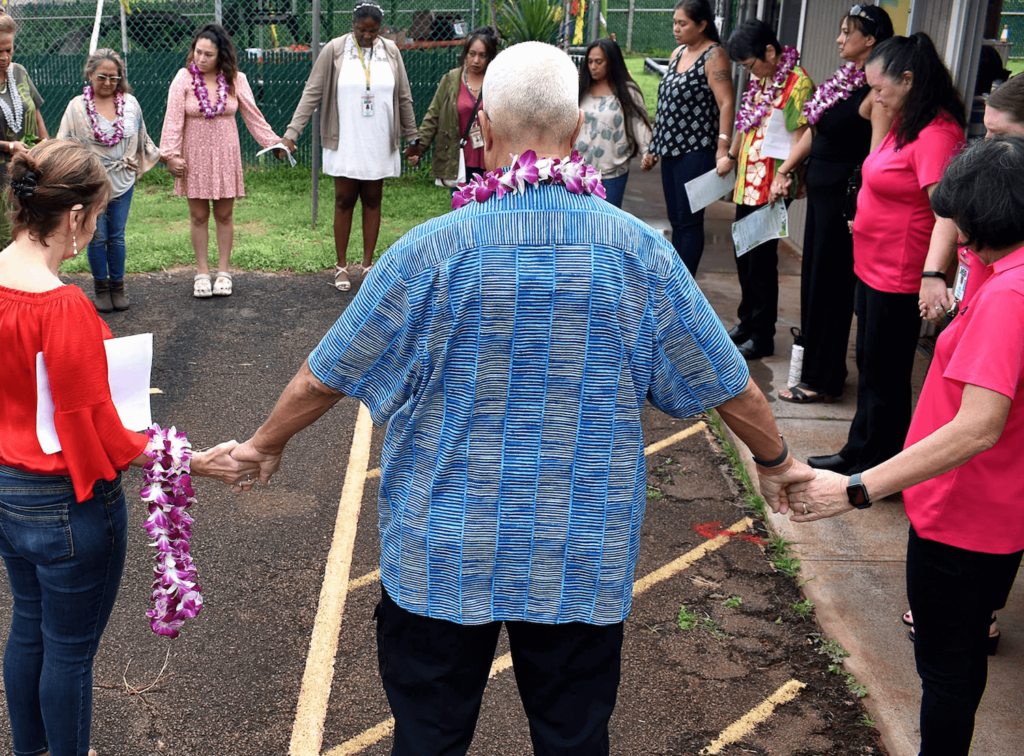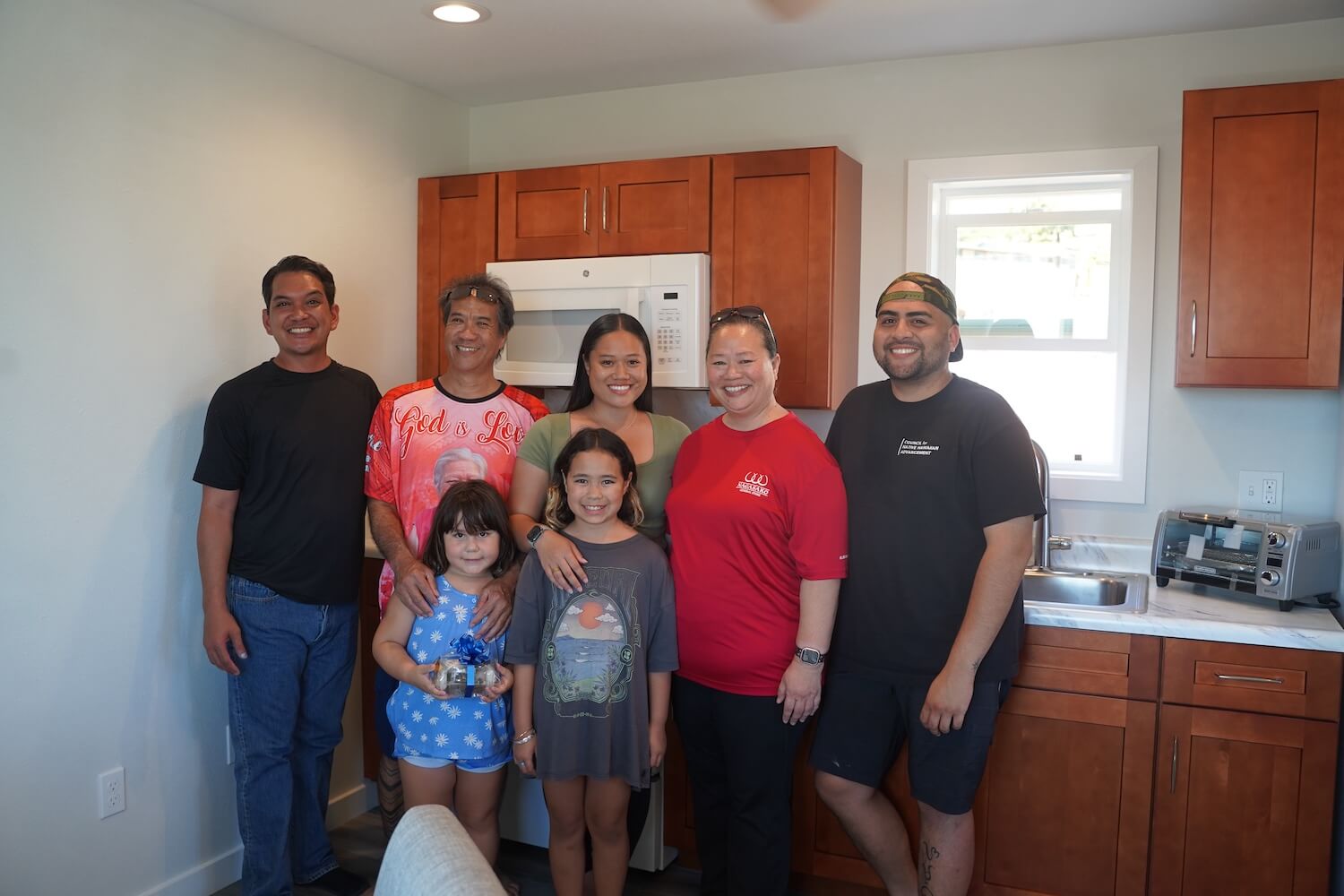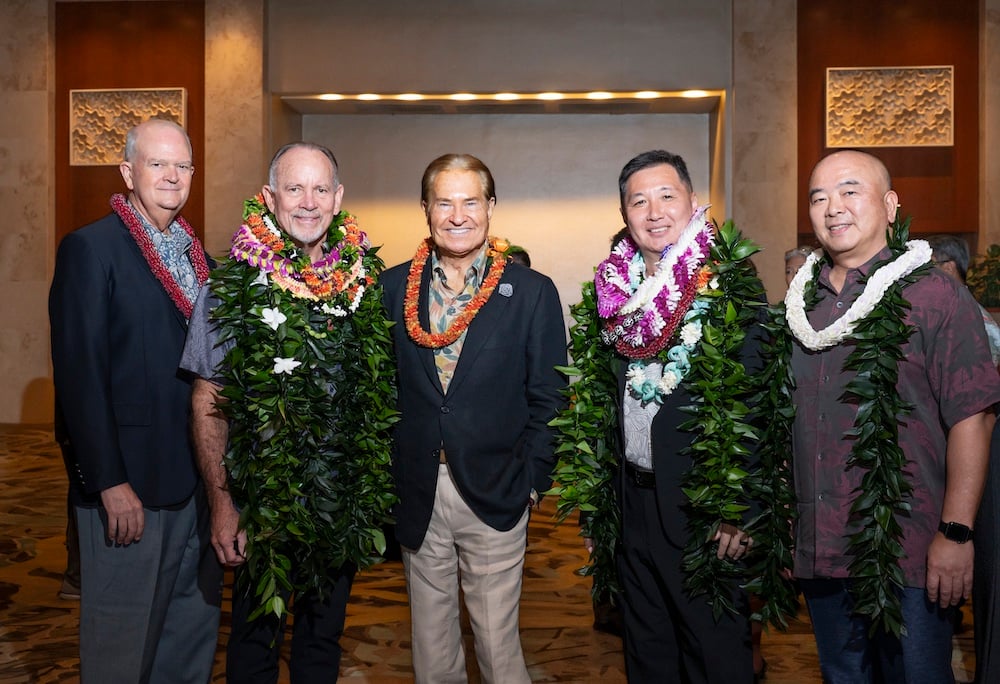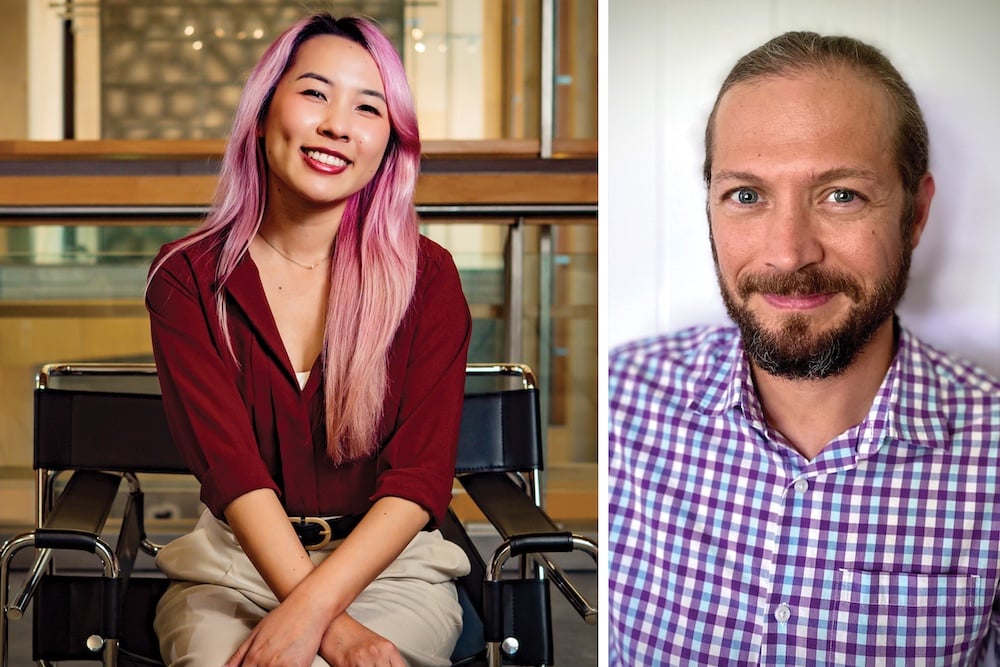Relief for Maui Residents Being Led by Organizations in Maui
Organizations in Maui receive critical support from the Maui Strong Fund to fulfill needs of residents they are best positioned to address.

Accessing health care on Maui has long been a challenge for many Maui residents living with disabilities and other long-term medical needs, but the August 2023 wildfires made it nearly impossible – until local organizations put their heads together.
“We are working to fill these gaps in creative ways, utilizing our partner grassroots organizations,” says Jennifer Gladwin, a co-founder of the Kelea Foundation, which has helped connect impacted residents with disabilities and complex medical cases with care and equipment. “It will be a collaborative and collective approach that helps to ease these burdens, that I can tell you without a doubt.”
The nonprofit is one of close to 200 organizations that have received grants from the Hawai‘i Community Foundation’s (HCF) Maui Strong Fund. It and other grantees say collaborations, determination and lessons learned from past experiences have been integral to delivering relief. HCF provides funding through grants to nonprofits that have unique, needs-focused programming that is often already established in the communities they are serving. In times of disaster, some nonprofit organizations establish new programs since they are in the best position to address urgent needs.
Many Lahaina residents lost essential medical assistance equipment to the fire, including cars, wheelchairs, walkers, shower chairs, electric lifts, mobility scooters, dentures and glasses. Funding from HCF and others helped the nonprofit lease a centralized storage and distribution site in Kahului and acquire a wheelchair accessible van to help transport residents to critical appointments. The nonprofit has supported more than 100 individual cases; distributed more than 300 items; and received, sorted and created tracking systems for more than 17,000 items.
The Council for Native Hawaiian Advancement and Maui Economic Opportunity relied on the capacity they built from their pandemic relief programs to help them quickly respond to the Maui wildfires.
“When the fires occurred, we had a template to stand up assistance programs quickly and were mentally prepared for high demand,” says Debbie Cabebe, CEO of MEO.
CNHA launched host housing, workforce development and leasing programs, plus its Kākoʻo Maui Relief and Aid Services Center in Kahului to help impacted community members access resources and complete applications. And MEO launched rental assistance, Temporary Assistance for Needy Families and displaced worker programs, plus business grants.
“We walked in prepared to do what was necessary to support the situation,” says Nick Carroll, chief of staff of CNHA. “When kuleana calls, you answer the call.”
CNHA has assisted 6,000 individuals through its Kāko‘o Maui Resource Center, housed 900 individuals through its Host Housing Support Program and Kākoʻo Maui Housing Program, and graduated more than 400 Maui residents from its trades program. It’s also developing 66 affordable rental units to provide mid-term housing to impacted community members.

The first family to move into La`ikū, CNHA’s Lahaina temporary housing project, stands with CNHA staff. Credit: CNHA
MEO has provided nearly $4.2 million in rent relief to 655 individuals. And its TANF program has provided more than $8.9 million to nearly 5,200 individuals. That assistance covers rent, mortgage, utility, school supply, car, and clothing payments. Its displaced worker program has placed 189 individuals at 48 host sites, and its Maui Business Bridge Grants has provided $10 million to about 1,050 businesses.
Cabebe says one of the more heartwarming impacts she has seen was at the reunion MEO held for its Lahaina Honolua Senior Citizen Club. Its members have been scattered around the island, and its original meeting place, the West Maui Senior Center, was destroyed in the fire.
“It was emotionally overwhelming and heartfelt to share in their joy and pain while enjoying a meal and talking story,” she says. “Since then, MEO has supported the revitalization of the club by transporting members all over the island to monthly meetings hosted by MEO in Wailuku.”
HCF grantees are now shifting their strategies to focus on long-term recovery and rebuilding. CNHA has launched a pre-development grant to help homeowners with early rebuilding costs, and its trades program will begin offering courses in heavy equipment certification. MEO is building 120 affordable rental units in Waiehu with Hale Mahaolu and Highridge Costa. The nonprofit is also helping clients to secure living wage jobs in high growth industries and focusing on financial literacy and credit repair.
The Kelea Foundation is preparing to collect data to better understand the specific needs of survivors with disabilities and working with government agencies and other partners to ensure that emergency response plans and equipment storage for future emergencies are inclusive and accessible. In addition, it’s focused on rebuilding community care networks that enabled residents with disabilities to live independently prior to the fires.
Gladwin says one of the larger challenges moving forward is the lack of supportive and accessible housing options. Getting creative and partnering with others will help the Kelea Foundation address some of the immediate issues residents face, but she doesn’t have an easy answer as the community waits for projects to be built.
“It takes people who go above and beyond; it takes people who see community wellbeing as an intricate part to their own wellbeing; it takes sharing resources and talking to each other,” she says. “And we are working on that each day. We have an opportunity to rebuild a community that works for everyone.”
The Hawai`i Community Foundation’s Maui Strong Fund is providing financial resources to support the immediate and long-term recovery needs for the people and places affected by the devastating Maui wildfires. For more information, read United for Recovery, the Maui Strong Fund 1-year impact report.






